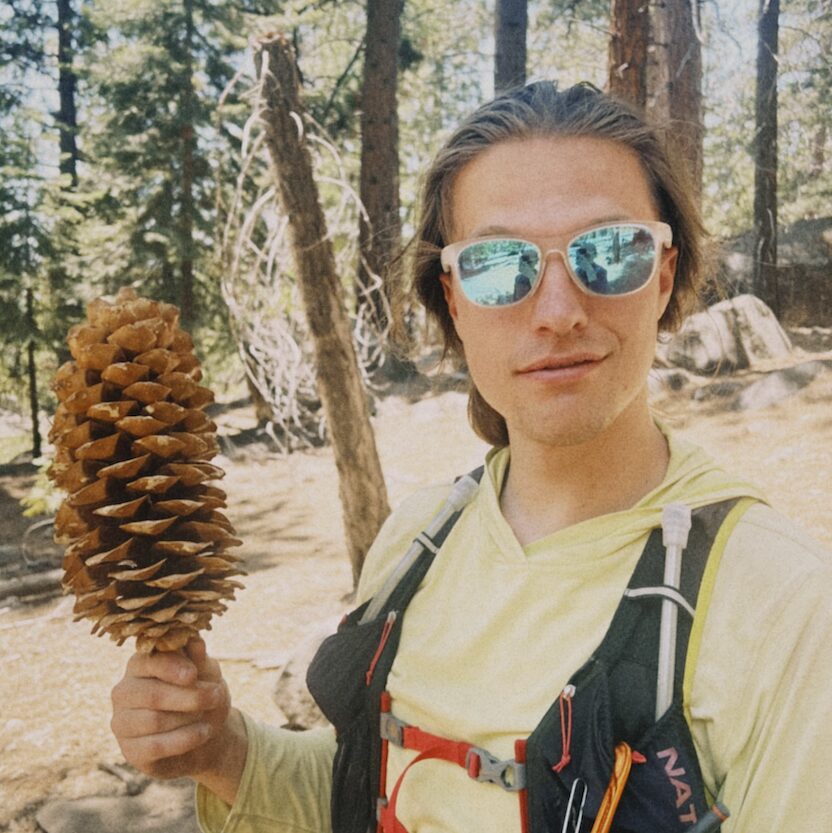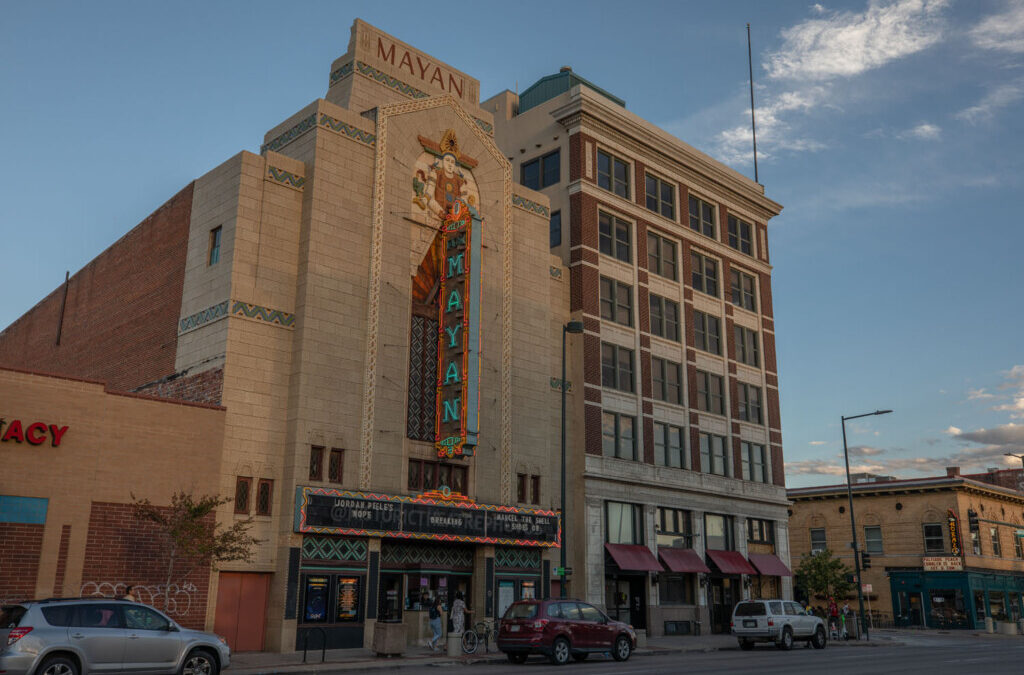Today, please welcome Clint Wilson (‘23), who will be writing for us on the 15th of each month. Clint graduated from Calvin with an official degree in philosophy and unofficial degree in outdoor rec. They currently live in Denver and are working remotely for an LSAT prep company. You’ll likely find them slowly jogging a trail, belaying their wife up some rocks, or reading beneath a heap of blankets.
I’ve been thinking about dirt lately. Rather, I’ve been thinking about my lack of proximity to raw earth. Everywhere I go is sprawling concrete. Standard twenty-first-century American urbanism. I struggle to appreciate it.
The place my wife and I rent abuts an alley, which I call our backyard. There’s no grass, only a patchwork of asphalt and concrete that I’m not sure could get more unclean. There is only filth.
Dirt from beneath my backyard appeared a week or two ago when city workers were replacing a small pipe buried underneath all the gray. I had forgotten land existed beyond the concrete and the color of it threw me—a claylike, coppery brown.
Still, lifeless and unnaturally hidden, that dirt felt like a simulacrum of soil. If you showed it to me in a children’s science museum exhibit, I would nod along knowing it wasn’t real. Only these workers could reveal it, yet I’m surrounded by this fake dirt. Even when I head to Wash Park, the gravel trail I run on is gray and curated.
For a country mouse like me, this is a far cry from the truly earthen forest floor. There’s a distinct lack of unpredictability. Wandering a stray patch of woods where any step might be softer than the last, and everything has a decaying layer feels so much more raw. The leafy crust hides ground so brown it’s nearly black, but it smells like life. That’s real dirt.
Even the soil beneath our lawn, mowed for play or tilled for gardening, had a distinctly wild feel to it. The grass hid sticks that could trip any child windmilling down a hill. The garden always needed to be combed for rocks, no matter how long we spent doing so the summer before. I remember having a distinct relationship with the ground as its own being. I remember being dirty and loving it.
Maybe this is the bejeweled memory of childhood. Or maybe it’s the grump in me that just wants to stroll a wildflower meadow. Either way, I’m convinced there is a certain kind of disorientation that comes from spending too much time in a city.
This disorientation seems to have taken root. In the first half of the current decade, the population of rural counties has grown. This is markedly different from the previous few decades where rural counties were losing people. And it’s not more births. Instead, it’s the migration of young adults and families out of urban areas.
While some of this may be due to the increasingly remote nature of our work, we started moving out of urban centers before significant large-scale concern for proximity to each other. The trend is pre-pandemic. Also, new businesses are forming at faster rates in our rural areas. It seems as though we’re innovating new ways to sustain ourselves in less populous spaces.
I loved my wild childhood. The forest provided a rare cradle for solitude in an otherwise overwhelming world. To all my comrades who grew up wandering off into the woods behind your house and now find yourself staring at concrete backyards, I see you.
But don’t get me wrong. I love my city life. There are groceries, bars, cafes, libraries, and an old theater with cheap tickets (pictured) all accessible by foot. One street over, framed by houses that rise into skyscrapers, is the golden dome of Colorado’s capital building. Nearly everything I need is found within a few blocks, and yet there is so much space left begging for exploration. All around me, when I muster the energy to peer through the grime, I see an unmistakable reminder of all the labor and creativity that it takes to flourish together.

Clint Wilson (‘23) graduated from Calvin with an official degree in philosophy and unofficial degree in outdoor rec. They currently live in Denver and are working remotely for an LSAT prep company. You’ll likely find them slowly jogging a trail, belaying their wife up some rocks, or reading beneath a heap of blankets.


